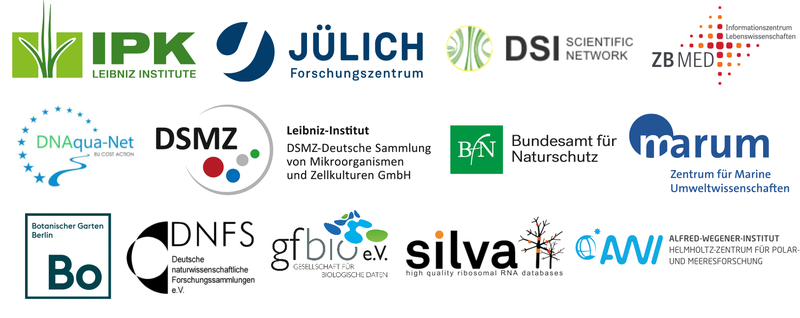Feasibility Assessment of Regulation for Digital Sequence Information (FAR-DSI)
What is DSI and why does it matter?
- DSI is a policy term for digital sequence information, i.e., DNA sequences, protein sequences, or molecular data.
- DSI has revolutionized life sciences and became the foundation of modern-day biodiversity research.
- Open access to DSI has allowed the contribution to remarkable advances in biodiversity conservation, agriculture, medicine, and more.
- DSI results directly or indirectly from the utilization of genetic resources.
- Because genetic resources are regulated by the Nagoya Protocol, some countries would like to regulate DSI as well. In a nutshell: the Nagoya Protocol recognizes countries’ sovereign rights over their genetic resources and establishes mutually agreed terms (between the user and provider country) for access and benefit-sharing (ABS) generated by the use of these resources.
Negotiations at UN might impact the users of biodiversity data and databases working practices
The United Nations (UN) Convention on Biological Diversity (CBD) is a global agreement dealing with the conservation of biodiversity, its sustainable use, and the fair and equitable sharing of the benefits arising from the utilization of genetic resources. Part of the Global Biodiversity Framework “package” deal agreed on COP15 was a decision to establish a multilateral benefit-sharing mechanism from digital sequence information (DSI) on genetic resources. While the decision defined principles for DSI benefit-sharing, much work needs to be done to develop and implement the mechanism.
THE PROJECT

The FAR-DSI project provides practical and technical background information for decision-makers in Germany and beyond to assess regulatory proposals developed in negotiations for the global biodiversity agreement. The project is carried out by GFBio e.V. in collaboration with the Policy Team at the Leibniz Institute DSMZ – German Collection of Microorganisms and Cell Cultures.
Project goals
- Impact assessment of DSI policy options for the scientific community, based on interviews and workshops with experts in research and data infrastructure.
- Provision of data and recommendations for measuring the use of DSI.
- Development of recommendations for non-monetary benefit-sharing, such as in capacity and skills development.

Stakeholder network
Research institutions and operating organizations within the National Research Data Infrastructure support the project as members of the Sounding Board.
RESULTS
Publications
- Raposo, D. S., Orozco, P., McCartney, A., Freitag, J., Rouard, M., Ebert, B., & Scholz, A. H. (2024). Digital Sequence Information (DSI) data governance practices to support benefit-sharing and science. Zenodo. https://doi.org/10.5281/zenodo.12755428
- Raposo, D. S., Cepeda, M. L., Ebert, B., & Scholz, A. H. (2023). Challenges and opportunities of geographical origin information in DSI benefit-sharing: a global analysis from the academic sector. Zenodo. https://doi.org/10.5281/zenodo.10050454
- Scarlett Sett, W. John Kress, Michael Halewood, David Nicholson, Genuar Nuñez-Vega, Davide Faggionato, Mathieu Rouard, Marcel Jaspars, Manuela da Silva, Christine Prat, Débora S. Raposo, Irma Klünker, Jens Freitag, Christian Keambou Tiambo, Carolina dos Santos Ribeiro, Linda Wong, Halima Benbouza, Jörg Overmann, DSI Scientific Network signatory authors & Amber Hartman Scholz. Harmonize rules for digital sequence information benefit-sharing across UN frameworks. Nat Commun 15, 8745 (2024). https://doi.org/10.1038/s41467-024-52994-z

Participation in events
- 15th Conference of the Parties to the United Nations Convention on Biological Diversity (COP15), Montreal, Quebec, 7–19 Dec 2022
- First open ended working group (WGDSI-1) on benefit-sharing from the use of DSI, Geneva, 14–19 Nov 2023
- Second open ended working group (WGDSI-2) on benefit-sharing from the use of DSI, Montreal, Quebec, 12–16 Aug 2024
- 16th Conference of the Parties to the United Nations Convention on Biological Diversity (COP16), Cali, Colombia, 21 Oct–1 Nov 2024
Contacts
Funding
The project is supported by the German Federal Agency for Nature Conservation (BfN) with funds from the Federal Ministry for the Environment, Nature Conservation, Nuclear Safety and Consumer Protection.
Project number:
Runtime:
